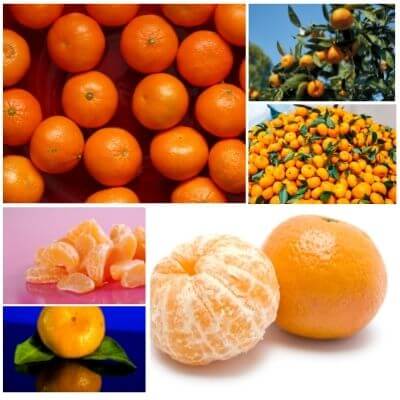Mandarin oranges are loose-skinned, orange-colored fruits that belongs to a variety of common oranges. The producing country of mandarin is China, followed by Spain and Turkey. Mandarins are generally sweeter and less acidic as compared to oranges.
Mandarin Oranges are sweet little juicy bombs, which is an excellent gift from nature. They contain a high amount of Vitamin C, Vitamin A, dietary fibers, nutrients, minerals such as potassium and manganese.
Many people may confuse about whether they are acidic or alkaline? And they are commonly mistaken as acidic food, while they are not acidic, so in which category do they fall, Acidic or Alkaline?

Are Mandarins Alkaline OR Acidic?
So, like other citrus fruits, Mandarins are also alkaline; they have a pH between 8.0 and 9.0 when fresh. They just have an acidic pH outside the human body, but when they are ingested and metabolized, they are incredibly Alkaline. According to one research by an American Dietetic spokeswoman, adding and eating too much alkaline food in a regular diet and staying hydrated can help to reduce the risk of cancer and many other diseases in the human body.
One good thing about Mandarins is that they are not everyday food-allergic fruits. Some people might face some allergic reactions after taking mandarins, but the response is relatively rare by comparison.
More about Mandarins and their types:
Mandarin fruit belongs to the citrus genus. Unlike oranges, they are not round; they are oblong and are easier to peel. There is not any exact information about how many types of mandarins are present in the world. Still, it is believed that almost 200 hybrids and varieties of mandarins are present worldwide.
The different types of mandarins include; Satsuma mandarins or citrus Unshiu. This type of mandarins typically grows in Japan, but they also gjrow in other areas of the Southern United States. Satsuma has thick but delicate skin, meaning they can be quickly peeled off but bruises easily.
Another famous type of Mandarins is commonly known as Citrus reticulate Blanco or Ponkan mandarins. They mainly grow across warm temperate to the tropical template, including some parts of China, Brazil, Spain, and the Philippines.
Clementines are also one the type of mandarin, which is sweet and easy to peel citrus fruit. This type of mandarin has a seedless interior, deeper color, and glossy skin that proves excellent for kids. Different brands like “Cuties” or “sweeties” use this type of mandarins.
See also:
Nutrition information of Mandarins:
One medium-sized mandarin is packed with the following nutrients;
- 2g Fiber
- 1g protein
- 0 fat
- 1% of the DV
- 3% of DV Potassium
- 5% of DV Magnesium
- 16g carbohydrates
- 7% protein
- 12g Carbs
- 53% DV of Vitamin C
Vitamin C:
Mandarin contains 53% DV of Vitamin C, which is a water-soluble that acts as an antioxidant that fights against potentially free radicles.
Vitamin A:
Vitamin A in mandarins is a pro-vitamin version of fat-soluble Vitamin, which means it comes from a plant source. The human body converts this pigment into active Vitamin A. this Vitamin plays an essential role in many components of healthy vision, immunity, and cell growth.
Potassium:
Mandarins contain this essential mineral and electrolyte, which is involved in countless main processes, including contraction of heart and muscles and healthy nervous system functioning.

Benefits of eating Mandarins:
Mandarins are a great and healthy way to take Vitamin C in winters. Mandarins are sweet, delicious, low-calorie fruit packed with plenty of health benefits. They are a great source of Vitamins, minerals, and nutrients that keep you and your family healthier during the winter months.
Consuming mandarins every day gives many health benefits, and experts believe that one can have five servings of Mandarins per day. Some great benefits of eating Mandarins are as follows;
Source of Nutrients:
Vitamins are a great source of providing Vitamin A, B, and a high level of Vitamin C., so they prove a great small packet of magic preventing infections, removing free radicals, and supporting skin health.
Mandarins are an excellent fruit to eat in winters as they contain Vitamin C, so they work to stop cold in winters. And, also keep the immune system functioning correctly and make you able to fight against any nasty bugs that come your way!
Remove the toxin from the body:
Mandarins work great to flush out all the toxins from your body and keep the digestive system active because they are a great source of fiber. This also lowers the cholesterol level in your body and keeps the sugar level balanced by slowing down food absorption.
Gives strength to bones:
Mandarins prove great when you want to improve your bone health. Add them to your regular diet to keep the ones strong and healthy as they are a great source of calcium, phosphorus, and magnesium. All these minerals are essential to keep the bone healthy, create a new bone, and fight against osteoporosis, which is more often necessary for people above 40.
Reduces the risk of Kidney stones:
The research showed that a diet rich in citrus fruit like mandarins also reduces the risk of kidney stones.
Low citrate levels in urine can cause some types of kidney stones to form, but fortunately, taking the appropriate amount of citrus food can boost the citrate level in the body, reducing the risk of kidney stones.
Source of Antioxidants:
Flavonoids are a type of antioxidant present in Mandarins; this type of antioxidant defend your body against an imbalance of free radicles, which, otherwise, could lead to oxidation. Oxidation further promotes aging and the onset of many diseases like heart disease and cancer.
However, flavonoids also help protect against cancer by suppressing genes that support cancer growth and inactive the compounds promoting cancer.
One thing to note here is that one needs to be sure about the quantity of citrus acid to get this type of positive result.
The versatility of Mandarins:
Mandarins are a great low-effort snack, and the good thing about them is that they are versatile and can be added to many of your favorite meals for a savory or a sweet twist.
